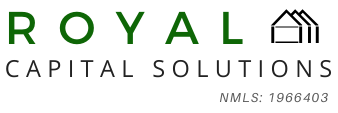Bank statement loans offer an alternative path to homeownership for individuals who may not meet traditional mortgage qualification standards. Unlike conventional loans that require tax returns, W-2s, or pay stubs, these programs assess a borrower’s income based on their bank statements. This approach provides a unique financing solution for self-employed individuals, entrepreneurs, and business owners who may have substantial tax write-offs that lower their reported taxable income but still maintain strong cash flow.
Designed to accommodate non-traditional income earners, bank statement loan programs allow borrowers to qualify using personal or business bank statements—typically over a 12- to 24-month period—to demonstrate consistent income. By reviewing deposits rather than tax documentation, lenders can offer financing options to those who might otherwise struggle to prove their ability to repay a loan under conventional guidelines.
These loans provide greater flexibility in mortgage approval, making them an excellent choice for freelancers, independent contractors, gig workers, and business owners seeking home financing without the constraints of traditional income verification methods. If you’re self-employed and looking for a mortgage solution tailored to your financial situation, a bank statement loan could be the key to homeownership. Contact us today to explore your options!
Bank Statement Loan Program Requirements
- Self-Employment Requirement – Borrowers must be self-employed for at least 2 years (some lenders may accept 1 year with strong financials).
- Bank Statement Documentation – Lenders typically require 12 to 24 months of personal or business bank statements to verify income.
- Credit Score Minimum – Most lenders require a credit score of 620 or higher, though some may have higher thresholds for better rates.
- Debt-to-Income (DTI) Ratio – Generally, DTI should be 50% or lower, though some lenders allow exceptions with strong compensating factors.
- Down Payment Requirements – Typically requires 10% to 20% down, depending on the borrower’s credit profile and loan amount.
- Cash Reserves – Some lenders require 3 to 12 months of reserves to cover mortgage payments in case of financial hardship.
- No Tax Returns or W-2s Required – Unlike traditional loans, tax returns and W-2s are not needed; qualification is based on bank deposits.
- Loan Amount Limits – Borrowers can qualify for loan amounts up to $3 million depending on lender guidelines.
- Must Show Consistent Income – Bank statements should reflect regular and stable deposits that demonstrate the ability to repay the loan.
- May Require a Profit & Loss Statement (P&L) – For business owners, some lenders may request a P&L statement prepared by an accountant.
Bank statement loans are an excellent option for self-employed borrowers, freelancers, and entrepreneurs who need a mortgage solution that fits their unique financial situation. Contact us today to see if you qualify!












